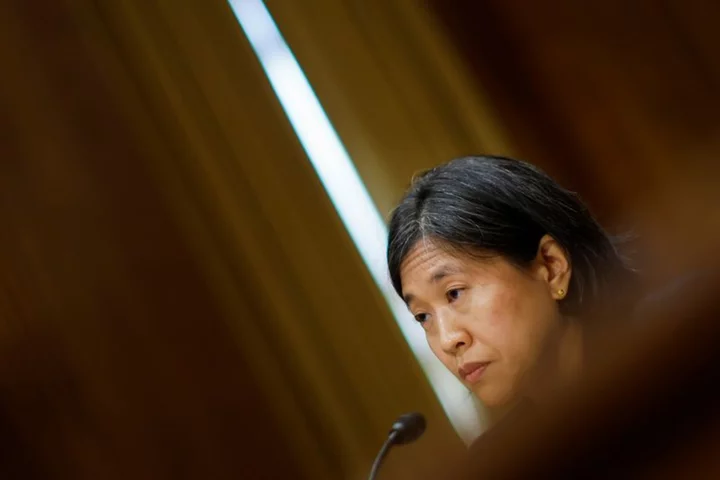WASHINGTON U.S. Trade Representative Katherine Tai said on Friday that the United States wants a "fair and effective" dispute settlement system at the World Trade Organization, adding that the 28-year-old body needs better tools to handle "non-market" policies -- a veiled reference to China.
Tai said in excerpts of remarks to be delivered at a forum in Washington alongside WTO Director General Ngozi Okonjo-Iweala, that WTO member countries need to commit to a reform agenda that puts workers first and puts the trade body at the center of efforts to tackle climate change.
The United States has for years rendered the WTO's Appellate Body inoperable by blocking the appointment of new judges, arguing that the organization's dispute appeals process has overstepped its mandate.
"The United States wants a WTO where dispute settlement is fair and effective and supports a healthy balance of sovereignty, democracy, and economic integration," Tai will say at the Center for Strategic and International Studies in Washington.
She said the U.S. also wants a WTO "where all members embrace transparency. Where we have better rules and tools to tackle non-market policies and practices and to confront the climate crisis and other pressing issues."
Tai did not specifically name China in her remarks, but has long pushed back against "non-market" economic and trade practices from China, raising fresh objections to its state-led approach during a late May meeting with Chinese Commerce Minister Wang Wentao in Detroit.
She also has long argued that China has failed to embrace the market-oriented principles that it committed to follow when it joined the WTO in 2001, and that the trade body has been unable to counter China's massive subsidies and support for state-owned enterprises.
(Reporting by David Lawder)

